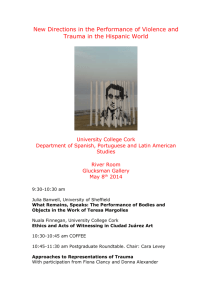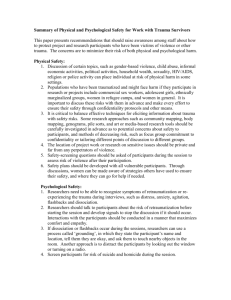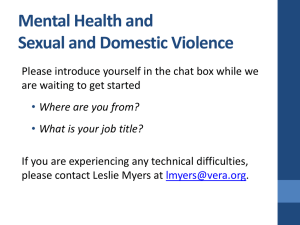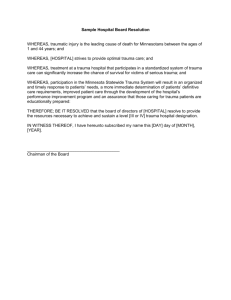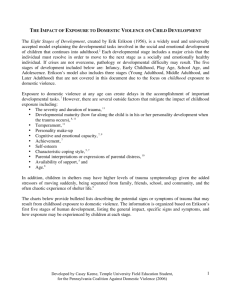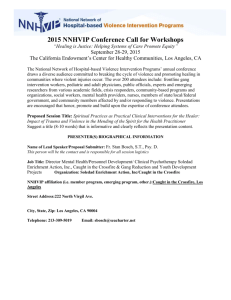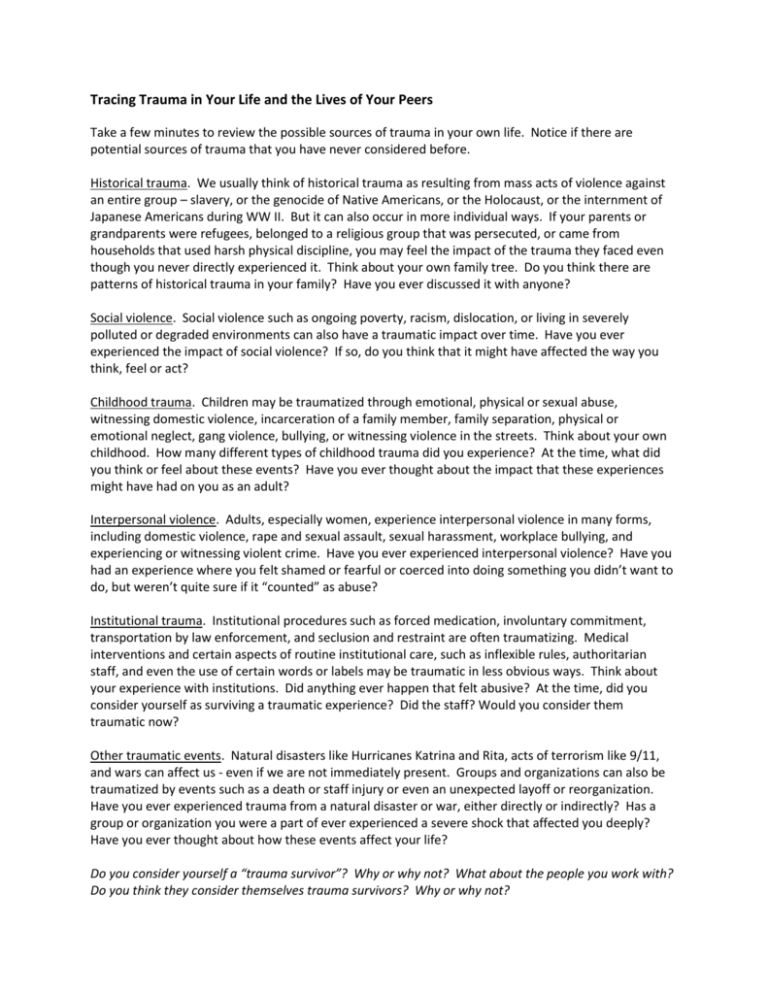
Tracing Trauma in Your Life and the Lives of Your Peers
Take a few minutes to review the possible sources of trauma in your own life. Notice if there are
potential sources of trauma that you have never considered before.
Historical trauma. We usually think of historical trauma as resulting from mass acts of violence against
an entire group – slavery, or the genocide of Native Americans, or the Holocaust, or the internment of
Japanese Americans during WW II. But it can also occur in more individual ways. If your parents or
grandparents were refugees, belonged to a religious group that was persecuted, or came from
households that used harsh physical discipline, you may feel the impact of the trauma they faced even
though you never directly experienced it. Think about your own family tree. Do you think there are
patterns of historical trauma in your family? Have you ever discussed it with anyone?
Social violence. Social violence such as ongoing poverty, racism, dislocation, or living in severely
polluted or degraded environments can also have a traumatic impact over time. Have you ever
experienced the impact of social violence? If so, do you think that it might have affected the way you
think, feel or act?
Childhood trauma. Children may be traumatized through emotional, physical or sexual abuse,
witnessing domestic violence, incarceration of a family member, family separation, physical or
emotional neglect, gang violence, bullying, or witnessing violence in the streets. Think about your own
childhood. How many different types of childhood trauma did you experience? At the time, what did
you think or feel about these events? Have you ever thought about the impact that these experiences
might have had on you as an adult?
Interpersonal violence. Adults, especially women, experience interpersonal violence in many forms,
including domestic violence, rape and sexual assault, sexual harassment, workplace bullying, and
experiencing or witnessing violent crime. Have you ever experienced interpersonal violence? Have you
had an experience where you felt shamed or fearful or coerced into doing something you didn’t want to
do, but weren’t quite sure if it “counted” as abuse?
Institutional trauma. Institutional procedures such as forced medication, involuntary commitment,
transportation by law enforcement, and seclusion and restraint are often traumatizing. Medical
interventions and certain aspects of routine institutional care, such as inflexible rules, authoritarian
staff, and even the use of certain words or labels may be traumatic in less obvious ways. Think about
your experience with institutions. Did anything ever happen that felt abusive? At the time, did you
consider yourself as surviving a traumatic experience? Did the staff? Would you consider them
traumatic now?
Other traumatic events. Natural disasters like Hurricanes Katrina and Rita, acts of terrorism like 9/11,
and wars can affect us - even if we are not immediately present. Groups and organizations can also be
traumatized by events such as a death or staff injury or even an unexpected layoff or reorganization.
Have you ever experienced trauma from a natural disaster or war, either directly or indirectly? Has a
group or organization you were a part of ever experienced a severe shock that affected you deeply?
Have you ever thought about how these events affect your life?
Do you consider yourself a “trauma survivor”? Why or why not? What about the people you work with?
Do you think they consider themselves trauma survivors? Why or why not?



